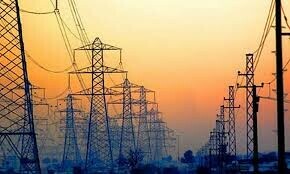After the first round of reforms introduced in the federal budget 2013-14 under the IMF’s $6.78 billion Extended Fund Facility, the government had to request waivers for non-compliance on at least two performance criteria in two quarterly reviews within six months.
This time, however, the pick up in key economic areas, a favourable tide among the business community and a general atmosphere of engagement with the Taliban for revival of investor confidence, are some of the positives to PML-N’s advantage.
The IMF is, however, still concerned, while appreciating the initial progress made in stabilising the economy and introducing important structural reforms. The Fund is also reported to have welcomed the inflow of a $1.5 billion in a ‘gift’ from a friendly country into the little known Pakistan Development Fund.
But some people expect more to be conveyed in bilateral talks to the country’s economic managers when they visit Washington from April 11 to 13 to attend the IMF-World Bank spring meetings.
“Economic conditions remain challenging, and more needs to be done to reduce vulnerabilities,” the IMF said. It specifically highlighted the need for additional efforts to broaden the revenue base and improve tax administration, as revenue growth struggled to reach about 16pc in the first eight months of this fiscal, against targeted 26pc.
The IMF also specifically questioned the tax amnesty scheme offered by the prime minister in December. Slippages in targeted cash transfers should be avoided to protect the most vulnerable segments of the population. It will also be important to improve public debt management.
Pakistan is yet to achieve the benchmark for end-March 2014, involving enactment of amendments to the State Bank of Pakistan law to give more autonomy to the central bank for ensuring price stability, and strengthening its governance.
“Agreed legislation to enhance the central bank’s independence should be presented for parliamentary approval without undue delay,” the IMF has reminded.
Pakistan was also found wanting on tackling financial sector risks, including capital shortfalls at some banks and high non-performing loans at others. And these were to be addressed by end-December 2013. The soft launch of government papers on stock exchanges is a major step forward in deepening the government debt market for improved financial stability.
On the critical energy front, while the government was able to revive — through judicial intervention — a gas development cess to generate revenues of about 0.4 per cent of GDP, the IMF believed this was not enough, as structural problems remain embedded both in the power and gas sectors.
“The rationalisation of gas prices should move beyond the gas levy; regulation of the energy sector needs to be strengthened; privatisation of public sector enterprises should move forward,” the IMF noted.
At the heart of the problem is a deadlock on the governance structure in the power sector. The power plants continue to operate without efficiency and merit, and distribution companies have remained without full-time managers for more than a year now.
The government’s ambitious plan of creating a commission for merit-based induction of chief executive officers of public sector entities has fizzled out, as political realities gained ground.
As a consequence, the bold move to increase power tariffs has, in fact, backfired. This is evident from the big decline in recoveries of distribution companies, increased complaints from consumers of extra-fictitious billing, coercion at the hands of power companies, and reemergence of circular debt beyond the official estimates.
As if that was not enough, the government has already missed two deadlines, as required under the law, for revising gas prices on a biannual basis (July 1, 2013, January 1, 2014). And the third deadline is coming due in a few months.
In the process, while gas companies seem to be treading the path of power sector as they struggle to sustain their viability, provincial governments may have to give up the revenues they earn on account of gas development surcharge (GDS).
Also, because of constitutional changes, decision making on account of policy advice to the regulator for gas tariff, benchmarks for system losses and all other regulatory issues has shifted from the federal cabinet and the Economic Coordination Committee of the cabinet to the Council of Common Interest (CCI).
How the government creates balance among conflicting interests worsened by poor governance at gas companies despite the high remunerations of their managers, reduction in provincial revenues on account of GDS, and burdening the consumers through increased tariffs (which could have political repercussions) — and yet meet the IMF’s requirements — would be seen with interest in the coming weeks.













































Dear visitor, the comments section is undergoing an overhaul and will return soon.